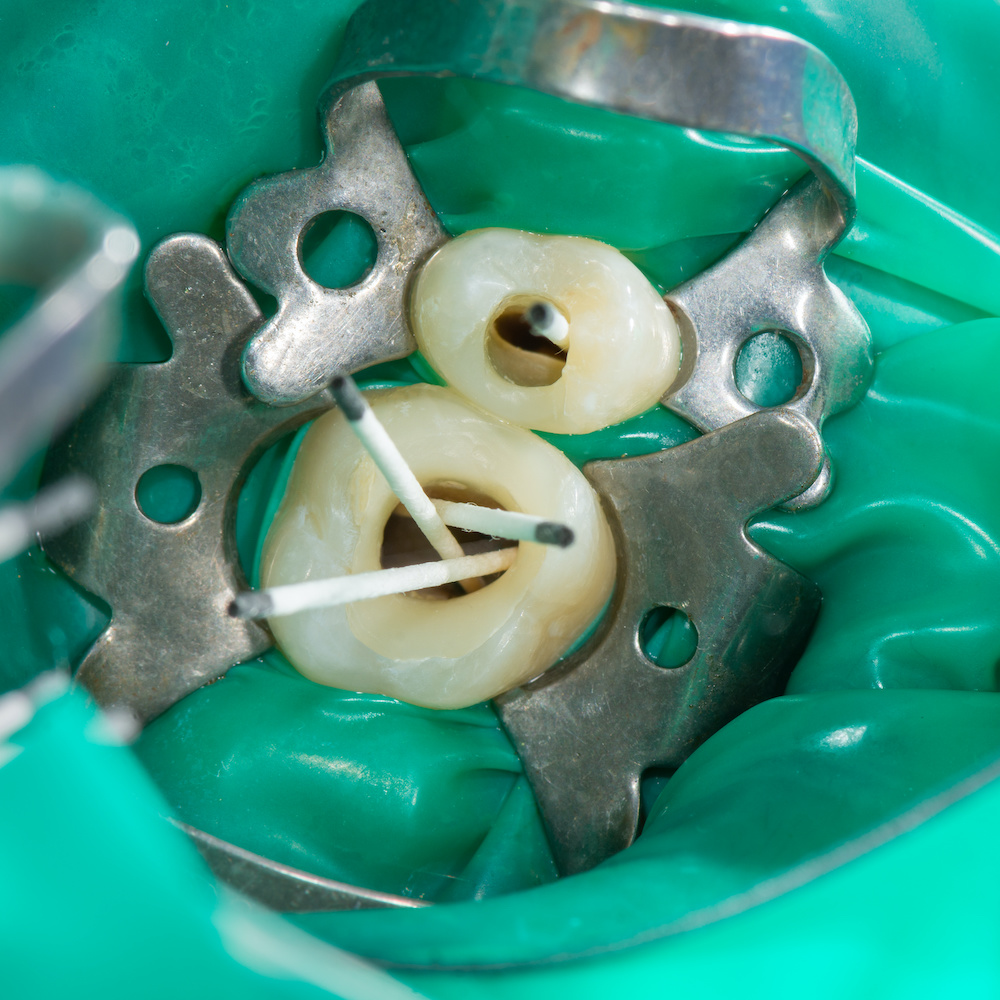
Root Canal Therapy
Having trouble even munching on your favorite chips? If you’re experiencing constant tooth pain or swelling of the gums around your tooth, chances are you will need root canal therapy. Tooth pain that requires this type of work is usually caused by:
- Inflamed “pulp” inside the tooth
- An abscess or other infection
- Gum decay or inflammation
- A crack or fracture in the tooth
If you experience any of the symptoms described above, make an appointment for an examination.
Root canal therapy is performed to alleviate pain in patients experiencing these kinds of symptoms. By drilling into the tooth, extracting the inflamed pulp, and filling the tooth cavity with a special material to take its place. This procedure is very common among dental patients and goes a long way towards restoring the affected tooth. Endodontic therapy can relieve tooth pain and inflammation, and reduce the risk of further infections.
Schedule Your Appointment

What To Expect During A Root Canal
After diagnosis, a long appointment usually is required to perform root canal therapy. A root canal therapy is done in several steps:
-
- An opening is made on the problem tooth to remove the infected nerve tissue and/or blood vessels
- The canal is then cleaned
- The canal is filled and sealed with special material to prevent future infection
- The tooth is restored with fillings
Root canal therapy is a very safe procedure that carries little to no risk, and patients are anesthetized for a quick, painless surgery. After the root canal therapy is completed, a crown is highly recommended to prevent breaking or fracturing of the tooth. Discoloration can happen after the root canal therapy, in which case a crown can be done for aesthetics as well.
If you are experiencing tooth pain or inflammation in line with the symptoms described above, don’t hesitate to contact Ellerslie 66 Dental and schedule an appointment.
